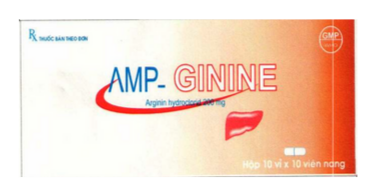Whey protein: Uses, doses, side effects
This is an automatically translated article.
Whey protein is one of the main proteins found in dairy products. Whey protein is a by-product of cheese making and provides a significant amount of essential amino acids for the body. Whey protein products are usually powdered and can be added to liquids or soft foods like applesauce or mixed with ice or fresh fruit to make smoothies. Whey protein is often used by athletes to improve performance or address undernutrition or diseases that lead to undernutrition.
1. What is Whey Protein?
Whey protein is the liquid part of milk that is separated during cheese making, and the composition of whey contains two main types of proteins: casein (80%) and whey (20%).
During cheese making, the fatty parts of milk are coagulated and whey is separated from the cheese as a by-product. If you've ever opened a yogurt container and seen liquid floating on top of yogurt, it's whey.
After being separated in the cheese making process, whey goes through various processing steps to become what people commonly call whey protein - a powder that is shaken to make, a meal replacement (meal) replacements) and protein bars.
Because whey protein has no taste, manufacturers often have to add flavors such as chocolate, vanilla and strawberry are three common flavors.
Before use, users should carefully read the ingredient list of whey protein as some products may contain unhealthy additions such as refined sugar.

Whey protein là một trong những protein chính được tìm thấy trong các sản phẩm từ sữa
2. Effects of whey protein
Physical exercise. Some evidence suggests that taking whey protein is part of a strength training plan to increase weight and muscle strength, but other studies show no benefit. such benefit. However, it is certain that whey protein can help speed up muscle recovery after intense training. Whey protein weight gain. Whey protein may help with weight gain in people who are having trouble gaining and keeping weight, such as older adults or people with HIV/AIDS. Healing. Whey protein has been shown to be beneficial for people recovering from burns and those with chronic wounds. Allergy. Hydrolyzed formula contains protein that is broken down into smaller sizes than formula and soy milk. Research shows that infants given whey protein that are hydrolyzed have a lower risk of developing atopic dermatitis (eczema) than infants given formula and a reduced risk of developing atopic dermatitis. allergic reactions in children with atopy.
3. How much whey protein is enough?
Because the quality and active ingredients added to whey protein can vary from manufacturer to manufacturer, scientists have not yet established a specific standard dosage for each specific subject such as: age, health status and gender.
Currently, according to the recommendations of experts as follows:
For the prevention and treatment of weight loss in people with HIV/AIDS, the daily amount of whey protein used orally is 8.4-84 grams or 2.4 grams/kg per day with calorie-rich protein or 42-84 grams per day of glutamine-rich protein. For Plaque Psoriasis: 5 grams of whey protein per day.

Lượng dùng whey protein phụ thuộc vào đối tượng sử dụng
4. Harm of whey protein
When used in appropriate doses, whey protein is safe for human consumption. Some studies suggest that whey protein may cause gastrointestinal upset, however, due to limited data on adverse events resulting from the use of high doses of protein in combination with foods and supplements, it is still There are no studies to fully evaluate the harmful effects of whey protein. Therefore, whey protein should not be used if you are allergic or sensitive to dairy products.
Drug interactions
Do not use whey protein with Levodopa because whey protein prevents the body from absorbing levodopa leading to reduced effectiveness of the treatment drug, so whey protein and levodopa should not be used at the same time. Taking whey protein and alendronate (Fosamax) at the same time might decrease how well the body absorbs and reduce the effectiveness of alendronate (Fosamax). Therefore, take alendronate (Fosamax) 2 hours after taking whey protein. Taking whey protein with some antibiotics can decrease the effectiveness of the medicine, so to avoid this interaction take whey protein at least one hour after taking the following antibiotics: ciprofloxacin (Cipro), enoxacin (Penetrex), norfloxacin (Chibroxin, Noroxin), sparfloxacin (Zagam), trovafloxacin (Trovan), and grepafloxacin (Raxar). Calcium in whey protein can bind to tetracycline drugs in the stomach, reducing the amount of tetracycline that the body can absorb. To avoid this interaction, use whey protein two hours before or four hours after taking the following tetracyclines: demeclocycline (Declomycin), minocycline (Minocin), and tetracycline (Achromycin).
Please dial HOTLINE for more information or register for an appointment HERE. Download MyVinmec app to make appointments faster and to manage your bookings easily.
Article reference source: mayoclinic.org, webmd.com





